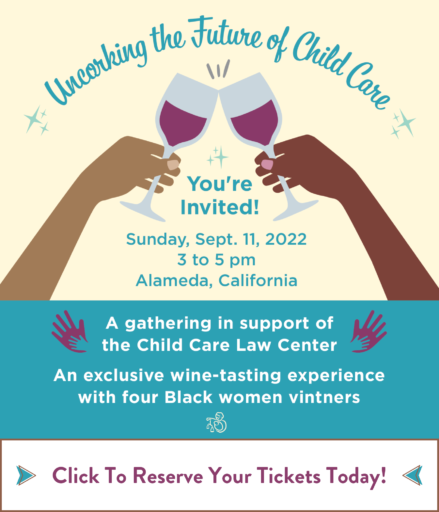1. Can I get an Emergency Child Care Voucher for Essential Workers and “At-Risk” children? (Last Reviewed 1/5/22)
Yes. California Department of Education (CDE) released Management Bulletin 21-08 for essential workers and “at-risk” children who want to apply for Temporary Emergency Child Care.
California Alternative Payment Programs (APPs) and California Migrant Alternative Payment Programs (CAMPs) can admit new families.
- Child care services through this program should last until June 30, 2022 or until funding runs out. See MB 21-08.
Essential Workers
If you are an essential worker, your family is eligible to enroll in the program if:
- The family works as an essential worker. If the family includes a two-parent household, both parents/caregivers must either be essential workers or the other parent must be unable to provide care for the child due to incapacitation
- The family requires childcare to perform their essential work
- The family is working outside of the home and is unable to work remotely
- The family’s income does not exceed 85 percent of the State Median Income, or the family is otherwise eligible for services under WIC Code § 10271; and
- The family’s assets do not exceed $1 million
Families with “at-risk” children
Families with “at-risk” children will be eligible to enroll if both are met:
- The parent self-certifies a child is identified as one of the following:
- Receiving Child Protective Services or at risk of abuse, neglect or exploitation; or
- Participating in the Emergency Childcare Bridge Program for Foster Children; or
- Experiencing homelessness; or
- A survivor of domestic violence; or
- Has disabilities or special health care needs whose IEPs or IFSPs include ELC services
- The family assets do not exceed $1 million.
Then your family must submit a self certification form to state the basis for needing care. The COVID-19 Emergency Child care form can be here. This is the only required documentation for enrollment in the program.
If you are a family who received an Emergency Child Care Voucher and you were disenrolled, you need to re-enroll as a new enrollment. Please contact your child care agency or the Child Care Law Center if you need help.
If you need help finding affordable child care, contact your local Resource and Referral (R&R) agency.
2. I got an Emergency Child Care Voucher before June 30, 2020. Can I still get Emergency Child Care services? (Last Reviewed 11/23/21)
Yes. The state has authorized more funding to continue Emergency Child Care. Emergency Child Care Vouchers have been extended until June 30, 2022. You should be notified 30 days before the end of your temporary emergency child care.
If you were disenrolled from Emergency Child Care you need to re-enroll as a new enrollment. Please refer to Question 6 “Can I get an Emergency Child Care Voucher for Essential Workers and “At-Risk” children?” to learn how to enroll in the program. Contact the Child Care Law Center if you need help.
You can use your Emergency Child Care Voucher at a center, licensed family child care provider, or license-exempt care (like a family member, friend or neighbor care). Contact your local Child Care Resource and Referral agency if you need help finding child care.
3. How will families with Emergency Child Care Vouchers get child care after the vouchers expire? (Last Reviewed 7/18/22)
Families who had Emergency Child Care Vouchers:
The temporary emergency child care program ended on June 30, 2022. Families should have received a notice 30 day before the end of care.
Families with emergency child care vouchers do have first priority for enrollment for ongoing child care services in the Alternative Payment Programs and the Migrant Alternative Payment Programs. Families will be enrolled based on the guidelines listed in the Welf. & Ins. Code section 10271. Families who do not meet the eligibility and need rules in Welf. & Ins. Code section 10271 will not receive continued care after June 30, 2022. For more information view Child Care Bulletin 22-15 page 4.
If you need help finding affordable child care, contact your local Resource and Referral (R&R) agency.
The following families may be eligible for child care assistance and should contact the Child Care Law Center if they have trouble qualifying:
- Individuals who currently participate in CalWORKs, or did within the last 2 years, are eligible for immediate child care assistance.
- Children in foster care are automatically eligible for certain types of child care such as Headstart and Early Headstart, regardless of income.
- Families experiencing homelessness are eligible for child care regardless of income.
- Families who care for children with CPS cases are eligible for child care regardless of income and are prioritized on the waitlist.
- Families who care for children who could be considered at risk of abuse, neglect, or exploitation can get child care and be prioritized on the waitlist if they get a letter from a qualified professional. This can include families that have experienced domestic violence.

